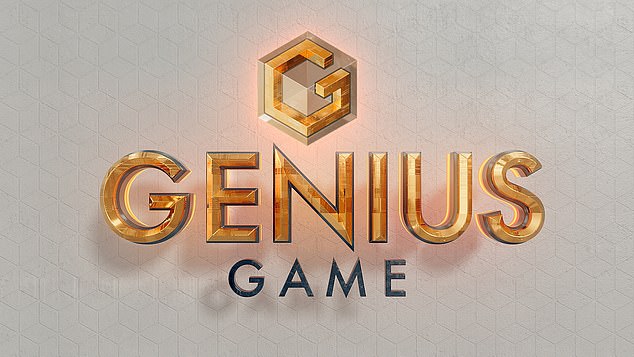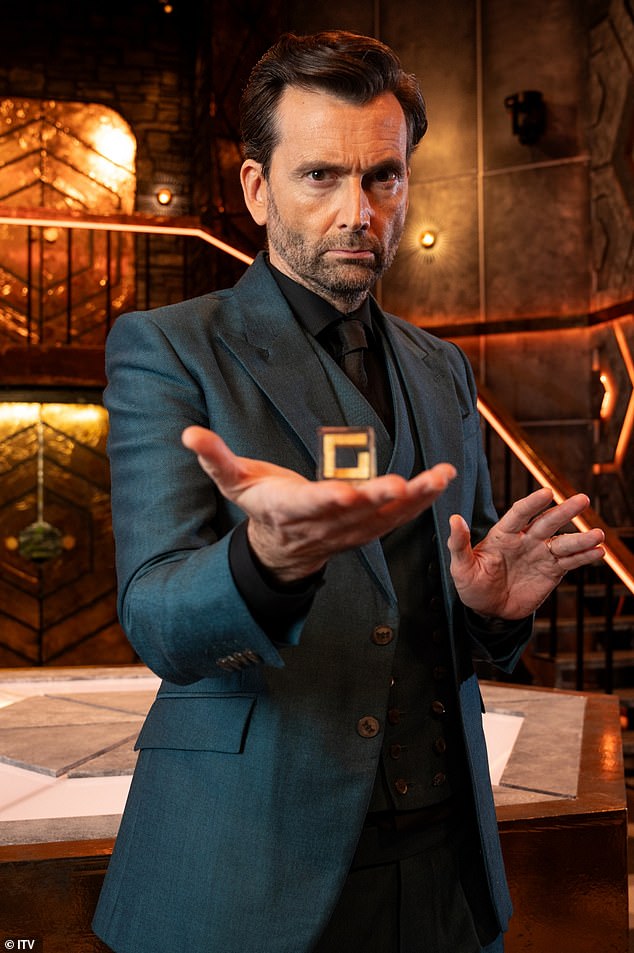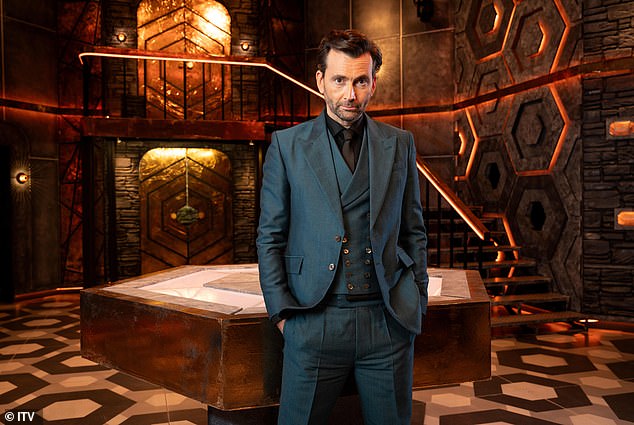Genius Game (ITV1)
A Mr A. Einstein of Berlin writes: ‘Dear Sir, After viewing David Tennant’s new game show, I feel obliged to revise my theory of special relativity.
It appears I am relatively stupid. Yours confused, Albert.’
And from New York, this one-liner from a Mr B. Fischer: ‘Sir, I can play 183 games of blindfold chess in my head simultaneously, but I can’t make sense of Genius Game. Baffled, Bobby.’
It takes a particular sort of genius to decode the rules of ITV‘s insanely convoluted brain-twister.
Don’t look at me — I can’t even work out what the players are competing to win.
Every time they complete a challenge, they might collect plastic cubes called ‘zircons’, which are worth £1,000.
But it appeared the first contestant to be eliminated had to hand his back, and the others seemed more interested in trading theirs than banking them.

The format is based on a South Korean TV hit. This implies that either Koreans are all supernaturally intelligent, or they have an abnormally high boredom threshold, writes Christopher Stevens

I’m not even sure whether Tennant, who plays a character called The Creator, has much to do with the games, aside from a handful of pre-recorded spiels to explain the rules — which he does in the manner of a man reading out the ingredients on the side of a cornflakes box, writes Christopher Stevens
So how much money is at stake, and how many players can benefit, I have no clue.
I’m not even sure whether Tennant, who plays a character called The Creator, has much to do with the games, aside from a handful of pre-recorded spiels to explain the rules — which he does in the manner of a man reading out the ingredients on the side of a cornflakes box.
The Doctor Who actor isn’t on set: his video clips are flashed up on a screen. Players can see him but he’s not actually in the room . . . in other words, he’s not really presenting the show.
But his involvement is enough for the producers to design the set as a facsimile of the Tardis, with panelled walls and staircases that lead nowhere.
In the middle of the room, instead of a spaceship console, there’s a cage. Players try to trap each other ‘in jail’, to prevent them from collecting zircons. Of course they do.
The format is based on a South Korean TV hit. This implies that either Koreans are all supernaturally intelligent, or they have an abnormally high boredom threshold.

It takes a particular sort of genius to decode the rules of ITV ‘s insanely convoluted brain-twister writes Christopher Stevens
The first hour-long episode consisted of one main game, played repeatedly. It was dull and meaningless the first time, and then it got worse.
Players had to decide whether to go for a prize by ‘raiding a bank vault’. There were three vaults, and if too many people went for the same one, they all got nothing and had to miss the next round.
By comparing strategies and ganging up on a single loser, they were able to protect their own interests.
One middle-aged chap called Paul tried to curry favour at the start by assuring everyone that, whatever clever tricks he pulled, it was all just a game and they shouldn’t take it personally.
Naturally, they picked Paul to be their first sacrificial victim. He took it quite personally.
Paul was evicted in a final round that involved matching shapes. In another room, the others watched on screen and shouted out the answers, meaning we couldn’t even play along at home.
Genius Game? Sheer cobblers, more like.






